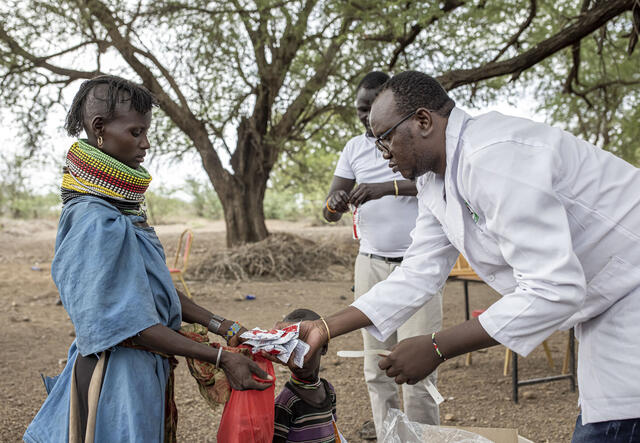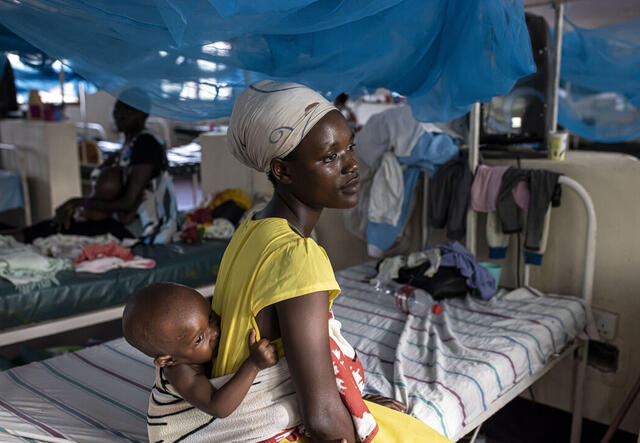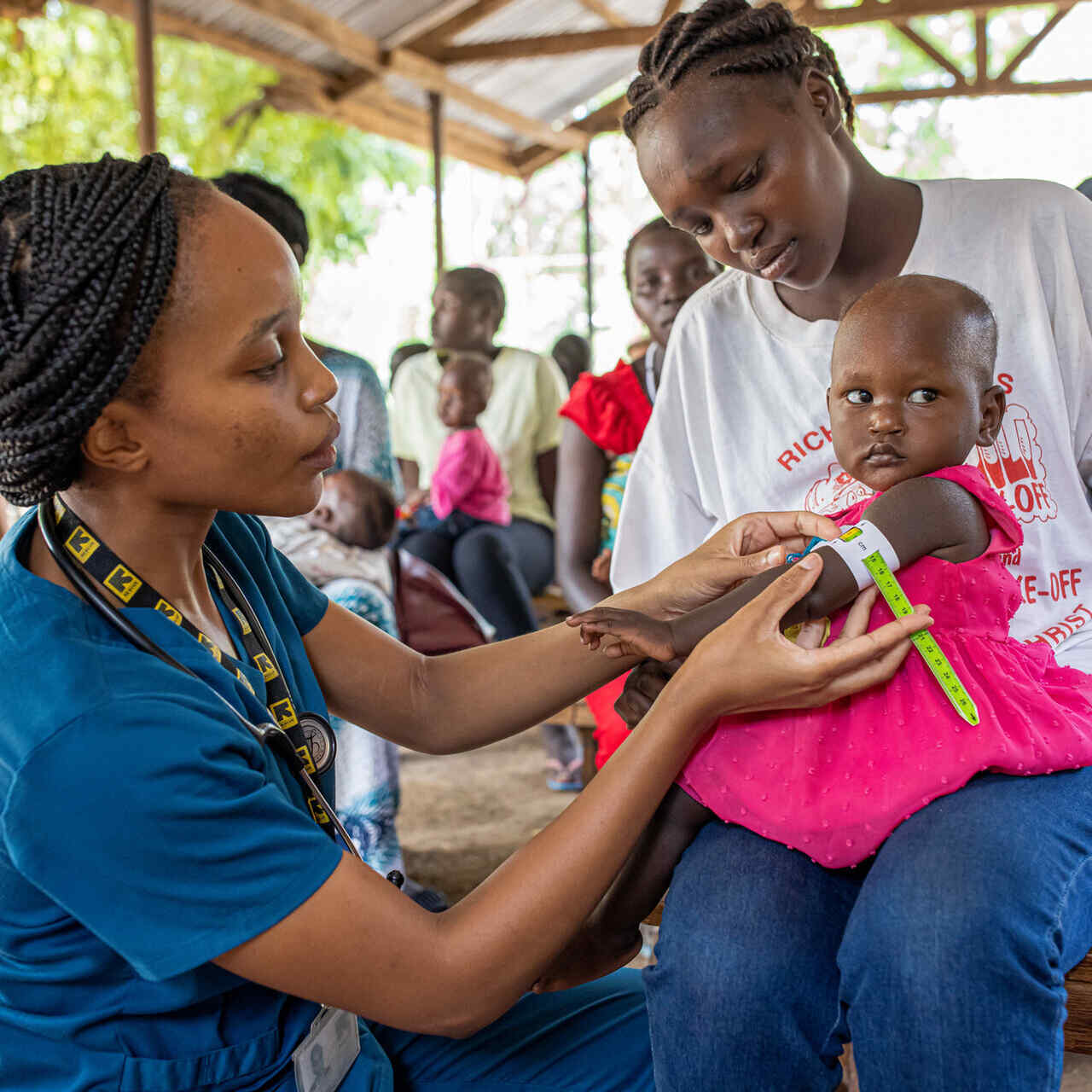Join us for 5 days/4 nights to see the International Rescue Committee’s (IRC) programs in Kenya including our East Africa drought response work.
Program Visit: The IRC in Kenya
Arrival: Monday, June 5, 2023
Departure: Friday, June 9, 2023
Context
Kenya, a country in East Africa, is bordered by South Sudan to the northwest, Ethiopia to the north, Somalia to the east, Uganda to the west, Tanzania to the south, and the Indian Ocean to the southeast. After the Mau Mau Revolution of 1952 between the United Kingdom and the British colony, Kenya declared its independence in 1963, becoming a presidential representative democratic republic.
Kenya has welcomed refugees and asylum-seekers since its independence and established refugee camps Dadaab and Kakuma in the north of the country in the 1990s in response to an influx of Somali and Sudanese families fleeing civil war and persecution. The IRC began working in Kenya in 1992 to aid refugees from Somalia and Sudan. Since then, we have grown to serve clients in eight locations across the country, leading programs that promote improved health, safety, and economic well-being and restore people’s power over decisions that impact their lives and futures.
The La-Niña induced drought has resulted in five consecutive failed or below-average rainy seasons in East Africa and continues to drive dangerous levels of food insecurity for millions of people. To mitigate the impact of the worsening drought in East Africa, the IRC has developed a regional drought response plan which will see critical services delivered to more than one million clients across drought-affected regions of Somalia, Ethiopia, and Kenya.
The IRC in Kenya
Working closely with community organizations, governments, and non-governmental organizations (NGOs), the IRC provides a range of services that empower refugees and local communities to lead safe, productive, and healthy lives. IRC teams deliver lifesaving emergency aid including healthcare, nutrition, women’s protection, livelihoods and legal rights education, to refugee populations and their host communities. Our programs in Kenya have delivered critical care to over 300,000 people a year, including nutrition support for malnourished children and supporting refugees and vulnerable Kenyans to start businesses and rebuild their lives.
- IRC hospitals and clinics provide comprehensive primary care and mental health support.
- Community Health Workers (CHWs) monitor diseases and conduct malnutrition screenings.
- Community Health programs implement preventive and promotive healthcare.
- The Reproductive Health and HIV program offers safe motherhood services, like antenatal and postnatal care, family planning, and programs for preventing mother-to-child transmission.
- The Core Polio Project aims to eradicate polio in the Turkana counties.
- The Nutrition program fosters the nutritional wellbeing of mothers and children using preventative and clinical services.
- Provide GBV response and prevention services, such as hotlines, psychosocial support (PSS), and rescue service.
- Community mobilization through interventions that raise awareness on GBV and reporting mechanisms.
- Village Savings and Loans Associations (VSLAs) and safe spaces for women.
- Cash and food interventions.
Vocational and entrepreneurship skills training.
Business startup and growth grants.
Private sector apprenticeships and internships.
Literacy and numeracy training, Urban Savings and Loans Associations (USLAs).
Run 3 Livelihood Resource Centers (LRCs) in Nairobi and one mobile resource center.
Integrated nutrition outreach teams.
Blanket supplementary feedings.
Water, sanitationand hygiene (WASH) services.
There are limited spots available on a first come, first served basis. When the trip is full, a waitlist will open. For more information about this trip, please email: Program.Visits@rescue.org.
TENTATIVE ITINERARY
DAY 1: June 5
- Arrive in Nairobi, Kenya
- Overnight stay in Nairobi
DAY 2: June 6
- Breakfast at Hotel
- Meeting with Airbel Nutrition Coordinator
- Re: Build Urban Livelihoods Program Visit
- Welcome dinner with IRC Kenya leadership and program staff
DAY 3: June 7
- Fly to Kakuma Refugee Camp (1.5 hrs)
- Briefing with the Department of Refugee Services on camp services/operations
- Go on a Driving Tour of the Refugee Camp
- Lunch at Clinic 6
- Visit Women's Protection and Empowerment Programming, including Gender-Based Violence
- Visit Response Center, and Women & Girls Safe Space
- Dinner and overnight stay in local hotel
DAY 4: June 8
- Breakfast at hotel
- Visit IRC Health programming in Kakuma, including the main hospital and stabilization center, and Clinic 4
- Lunch at a local restaurant
- Post-lunch debrief with Kakuma Management Team
- Drive to Lodwar (2 hrs)
- Dinner and overnight stay in Lodwar
DAY 5: June 9
- Breakfast at Hotel
- Drive to Integrated Outreach Site (2hr)
- Visit Integrated Outreach Site and see nutrition, health, and water trucking programs
- Drive to Women and Girl Safe Space (2hr)
- Visit Women and Girl Safe Space + Meet with Girl Shine adolescent clients
- Lunch in Lodwar
- Visit IRC Lodwar Office
- Fly to Nairobi (2 hours)
- Depart Nairobi, Kenya
FEE: $7,500 USD
This trip fee covers:
- Three meals per day, accommodations, domestic air travel, road travel, permits and entrance fees.
- Pre-departure support.
- A donation to IRC in Kenya.
Please note air travel to and from Kenya, and visa fees are not included in the above fee. A non-refundable deposit of $2,000 is required to reserve a spot on this trip.
The physical intensity level for this trip is moderate, expect an average level of walking and standing. Programs require significant travel by land and air.

FAQ
Donor Delegation Trips are quarterly pre-planned, fee-based group trips of 5 to 10 participants to destinations prioritized based on funding needs and accessibility.
IRC puts forth the greatest possible effort to provide a safe and secure operational environment. However, given the nature of our work, participants on the trip may be exposed to healthcare risks, including but not limited to the risk of communicable diseases such as COVID-19. While IRC communicates and expects all operating partners to comply with and encourage appropriate safeguarding measures, the risk of COVID-19 and other potentially infectious diseases still exists. Visitors are required to review the medical guidelines that are provided by IRC prior to participating in the trip and to carefully consider them as they relate to your own medical profile and medical risk tolerance levels.
Because we are limited in the number of trip participants, we prefer to have each participant slot taken by representatives of different giving vehicles in order to maximize the impact of the delegation visit for IRC’s funding needs. After the visit, a trip summary, as well as photos and videos from the visit will be shared with all trip participants, which can then be shared with family, friends, and stakeholders of foundations and partners.
IRC cannot host children on our program visits because our Safety and Security measures are not designed with children in mind, and cannot reasonably be adapted to ensure children’s safety.
Immediately after you register, you will receive an email from the IRC's Program Visits team. This will be your primary contact for trip-related questions or concerns in advance of the visit. Before the visit, you will receive many resources to support your preparation process (see the response to the question below “Are there resources to help me prepare for the upcoming visit?”)
Trip registrants should assume that the itinerary shared with their invitation is the itinerary for their visit, for all intents and purposes. The itinerary is shared at this stage to help set expectations around the locations and program types to be seen, and the pace of the visit. Making changes to meet the interests of individual participants will make it impossible to set realistic expectations.
That said, the itinerary distributed with the invitation is tentative and subject to changes at any time due to circumstances out of our control, such as weather, politics or safety. The itinerary is designed by the hosting country and program teams based on accessibility of programs and priority of funding needs, with the objective of showing as many program highlights as possible.
We aim to avoid having idle time, ensure travel routes are safe and destinations are secure, and recommend flight arrival and departure windows to ensure the best experience.
Immediately after you register for your trip, you will be contacted by the Program Visits team. This will be your primary contact and provide any support you will need in advance of the visit, such as visa invitation letters, flight recommendations, and itinerary updates. Several weeks before your trip, you will receive a Pre-departure Briefing containing history of the regional crisis and IRC’s response efforts, IRC emergency contact information, packing list, safety precautions and cultural norms to be aware of, IRC reports and information sheets, as well as additional recommended readings. Several days before your trip, you will participate in a mandatory Safety and Security briefing with the Program Visits team and the local Security officer from the region you will be visiting.
During the registration process, we ask about any dietary restrictions or preferences. Within reason, most dietary needs can be accommodated during delegation trips and if for some reason this is impossible, the registrant will be notified in advance of the trip. Because IRC operates in many remote locations, there will likely be limited options for meal alternatives at some points during the trip, and therefore it is important to be prepared for the likelihood of meal repetition.
How to cancel: If you would like to cancel your participation in the trip, contact Program.Visits@rescue.org. In your email, please indicate whether you would like a partial refund (see below for our refund policy) or prefer to donate your trip fee. In the case of a cancellation, the non-refundable deposit, and any additional donated portion of the trip fee, will be used as a donation to the hosting IRC country office and a thank you letter and tax receipt will be emailed to the cancelled registrant.
Refund policy: In order to register for the trip, a non-refundable deposit is required. This amount is different for each trip and can be found on the trip invitation and registration page. The deposit cannot be refunded for any reason, other than IRC has cancelled or postponed the trip. The remaining balance of the trip fee may be refunded if the registrant cancels more than 45 days prior to the trip arrival date. Within 45 days of the trip, IRC may have already incurred expenses related to domestic air and land travel, accommodations, and other non-cancellable charges, which the registrant may be held responsible for. Any refunds will be applied back to the credit card used to pay for the trip fee.
IRC will cancel a donor delegation program visit if the number of registrants does not meet the threshold for covering trip costs and allowing for a minimum donation size to the hosting country program. A visit may also be canceled due to unforeseen circumstances related to safety, or changes in the hosting country program staff capacity.
There are 8 spots available for this visit on a first come, first served basis. When the trip is full, a waitlist will open.
Contact us
Please email us with any questions.

